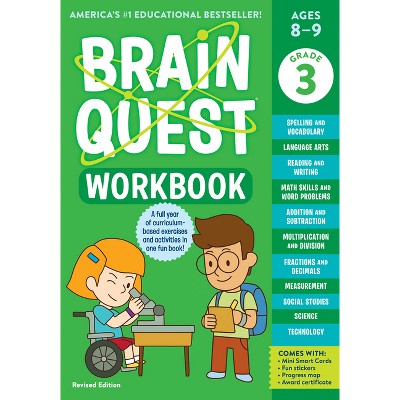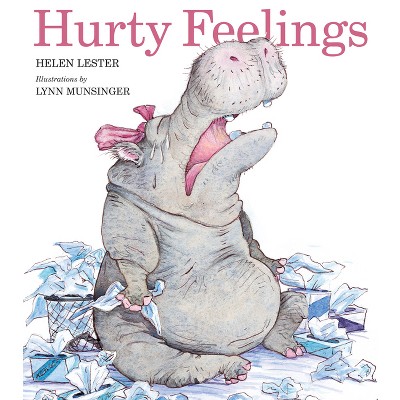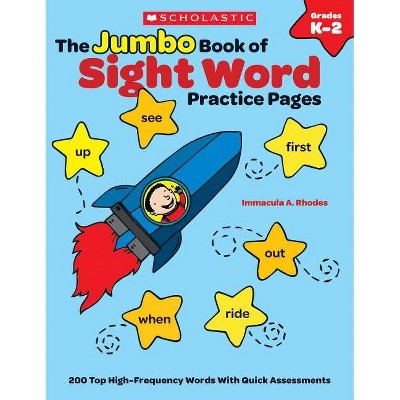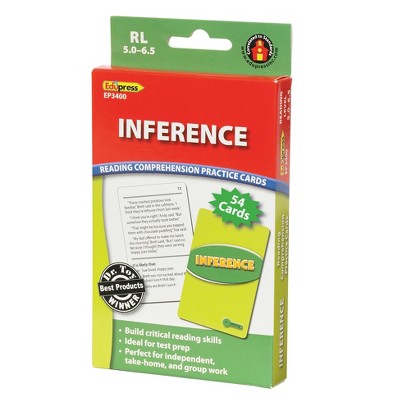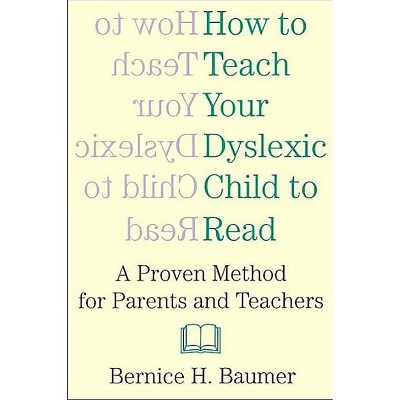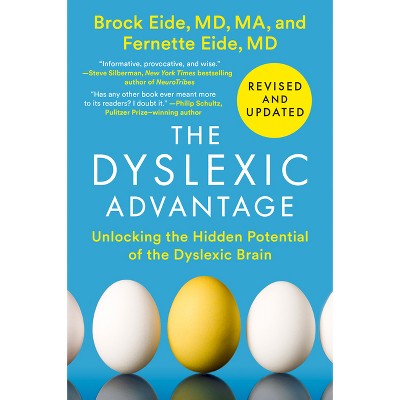Sponsored

Inside the Dyslexic Mind - by Laughton King (Paperback)
$21.52Save $3.47 (14% off)
In Stock
Eligible for registries and wish lists
Sponsored
About this item
Highlights
- In Laughton Kings formulation, a dyslexic person is like a diesel vehicle.
- About the Author: Laughton King is a retired psychologist whose contribution tothe progressive dismantling of what is commonly called 'dyslexia' comes from his70+ years as a 'dyslexic' person, and from 35 years as a psychologist workingwith children experiencing learning difficulties.
- 256 Pages
- Education, Learning Styles
Description
About the Book
In Laughton Kings formulation, a dyslexic person is like a diesel vehicle. They run perfectly if you give them the right fuel, but if you put petrol in the tank (i.e. expect them to learn like every normal child in our current education system) they break down. This book is designed to help dyslexic (diesel) thinkers make sense of their livesBook Synopsis
In Laughton Kings formulation, a dyslexic person is like a diesel vehicle. They run perfectly if you give them the right fuel, but if you put petrol in the tank (i.e. expect them to learn like every normal child in our current education system) they break down. This book is designed to help dyslexic (diesel) thinkers make sense of their livesReview Quotes
"brilliant book that resonated with me ... (and) connected me even more to my children and how they think."
-Busy City Kids
"A helpful and thorough look at what makes many people tick and how to manage their differences"
-Stratford Press
"Child psychologist Laughton King helps parents gain insight into dyslexic thinking, make sense of it in their life and how it can be a strength " -Woman's Day
"I have been overwhelmed by his book, my copy now highlighted, underlined and with notes and comments in the margins... It is indeed a resource, as the subtitle tells us, and it should be used as such. Keep it to hand, and re-savour the images and explanations that just jump off the page."
-Dr Vin Arthey, Dyslexic and former teacher and teacher educator
"I highly recommend picking up a copy of Inside the Dyslexic Mind in whichever format works best for yourself, from one picture thinker to another, this book puts into words, what life can be like and offers guidance for those in our lives to best support and understand our thinking."
-Roisin McCusker
For any teacher [or parent] who truly wishes to fully comprehend each and every child who stands before them Laughton's book [or title ] is a must read. Filled with case studies that surely will resonate, and appropriate questions to ask oneself, this book will guide the teacher or parent in any such investigation. [Today] It is too easy for teachers to simply pass children on to 'experts' for diagnosis and at times, damaging, labelling . It is the challenge for each and every teacher or parent to undertake this task and Laughton's book surely and clearly provides guidance to help with this process. While the issue of dyslexia provides the main thrust of this book Laughton also provides valuable insight into the many other labels that are prevalent today . I would have found this book invaluable at the beginning and during my more than 40 years of teaching and mentoring of teachers .
-David Simpson, 40 years involvement in Waldorf/Rudolf Steiner Schools Internationally
About the Author
Laughton King is a retired psychologist whose contribution tothe progressive dismantling of what is commonly called 'dyslexia' comes from his
70+ years as a 'dyslexic' person, and from 35 years as a psychologist working
with children experiencing learning difficulties. Laughton's difficulties with
reading meant that he did not rely on the insights and conclusions of academics
and scholars. Instead, through observation of his own and other's learning
processes, he established his own understanding of this unfortunately common
difficulty. School was a nightmare for Laughton. He could
not decipher the language of the teacher and was confused that other kids
could. His classroom failings led to social and behavioural failings, and for
these he was labelled and blamed. In turn, his acceptance of the blame led
directly to deep, prolonged depression. Laughton describes his eventual self-diagnosis
of dyslexia at age 45 years as like emerging from a dark cloud but lacking any
sense or understanding of its causes or functional dynamics. Subsequent
observations of thousands of children, their families and their teachers
eventually led to practical insights regarding dyslexia as a daily life issue
in a person's interfaces with society through the various stage of life. Alongside his long career as a psychologist,
educational psychologist and mediator, Laughton is the author of three
self-published works that represent the evolution of his understanding of the
dyslexic mind: Reaching the Reluctant Learner: A Manual of Strategies for
Teachers and Parents (2006), With, Not Against: A Compendium of Positive
Parenting Strategies (2008), and Dyslexia Dismantled (2010).
Dimensions (Overall): 8.9 Inches (H) x 5.9 Inches (W) x .7 Inches (D)
Weight: 1.0 Pounds
Suggested Age: 22 Years and Up
Number of Pages: 256
Genre: Education
Sub-Genre: Learning Styles
Publisher: Exisle Pub
Format: Paperback
Author: Laughton King
Language: English
Street Date: July 11, 2023
TCIN: 91359053
UPC: 9781922539427
Item Number (DPCI): 247-14-4835
Origin: Made in the USA or Imported
If the item details aren’t accurate or complete, we want to know about it.
Shipping details
Estimated ship dimensions: 0.7 inches length x 5.9 inches width x 8.9 inches height
Estimated ship weight: 1 pounds
We regret that this item cannot be shipped to PO Boxes.
This item cannot be shipped to the following locations: American Samoa (see also separate entry under AS), Guam (see also separate entry under GU), Northern Mariana Islands, Puerto Rico (see also separate entry under PR), United States Minor Outlying Islands, Virgin Islands, U.S., APO/FPO
Return details
This item can be returned to any Target store or Target.com.
This item must be returned within 90 days of the date it was purchased in store, shipped, delivered by a Shipt shopper, or made ready for pickup.
See the return policy for complete information.
